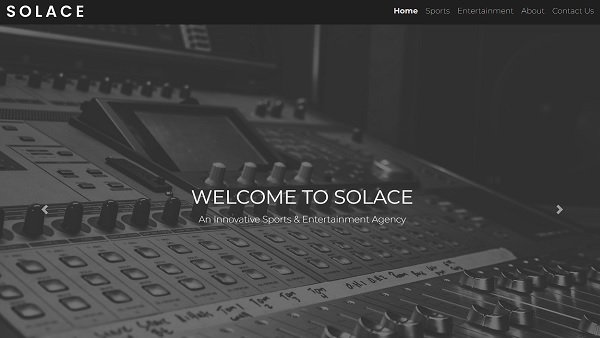By Curtis Bunn
University of Virginia women’s basketball player Mir McLean admits she was slow to respond to an email from Solace Sports and Entertainment co-founder Folasade Omogun-Broadnax about becoming a potential client. But when she finally spoke to Omogun-Broadnax a couple of days later about being the face of her sports agency centered on Black female college athletes, McLean said she felt an immediate connection.
“As a Black woman, I feel more connected to her versus someone else,” McLean said. “It’s really important for Black athletes to have that kind of representation because it provides another sense of protection. I don’t feel used. I don’t have to second-guess what’s best for me because I know that’s what she’s looking for — the best for me.”
That’s exactly what Omogun-Broadnax and her Solace partner, Terence Davis, set out to do with their company. The pair of 33-year-old attorneys, who served as clerks in the same circuit court in Maryland, talked for years about creating an agency that could advance the careers of Black female athletes.
Their plan was to focus on Black female college athletes, securing more exposure and endorsement deals following the NCAA’s new name, image and likeness, or NIL, policy that allows players to be compensated.
“Black female athletes are some of the most talented human beings on this planet,” Omogun-Broadnax said. “Yet, they are often overlooked for partnership opportunities that would help grow and advance their brands and careers.”
Before the NIL ruling in 2021, sports programs generated billions of dollars, but the athletes who competed were not able to receive payment.
School and athletic programs were enriched, but the players, many from families with financial challenges, received nothing or faced disqualification if they brokered a deal. Now, top college athletes have the opportunity to profit for the first time in NCAA history.
With their newly launched company, Omogun-Broadnax and Davis hoped to bring their personal touch, attention and passion to their clients. Omogun-Broadnax, a former criminal defense lawyer, even quit her most recent job as a litigator to lead the sports component of the company, while Davis, a personal injury lawyer, heads up the entertainment arm of Solace, based in Northern Virginia.
Omogun-Broadnax said she could understand the plight of many struggling athletes who love the sport but are financially stressed. In high school, she used sports as an escape from some of the tough circumstances she faced while growing up in Memphis, Tennessee. The daughter of a hardworking, single-mother African immigrant, Omogun-Broadnax spent part of her time in an extended stay hotel across the street from her middle school. When she went to college, things weren’t much better. She found joy in being a cross-country runner at Clark Atlanta University, but often struggled to find money for food.
“That experience informed my passion for making sure Black women athletes are included in the NIL and represented with care,” Omogun-Broadnax said. “I can’t even begin to describe how game-changing NIL would have been for me. There are some people who think these athletes are living good, that boosters are taking care of them. But the average athlete day to day is definitely struggling. …That’s why I am such a proponent of supporting these Black female athletes — they are the last ones to be considered.”
Solace’s talent roster is made up of five carefully selected clients. While adding more could help grow the business financially, the partners say they are discerning about who they take on and how large the agency grows. “We are intent on building out only to a point,” Omogun-Broadnax said. “We are hands-on. When our clients need us, they will get us and not staff members.”
Opendorse, an NIL technology company and marketplace, found 12.6% of NIL compensation went to women’s basketball players, CNBC reported. Data from On3 NIL, another NIL tracking company, indicates that eight of the top 10 earners among female athletes are white.
“One of my greatest missions is to use my skills, knowledge and creativity to attract opportunities for our clients that will transcend the limitations created by the industry’s status quo,” Omogun-Broadnax said.
There are other Black women who work as sports agents, but their clients are mostly professional male athletes. Nicole Lynn of Houston has established herself by representing NFL players, including MVP candidate Jalen Hurts of the Philadelphia Eagles. In Atlanta, Rashida Gayle became an agent at 27 and has a client list that includes NFL and Major League Soccer players.
Solace’s focus on Black female athletes gives the agency a rare niche. Davis said that niche sets them apart and Omogun-Broadnax “is the perfect person to lead in this space because of her personal experience.”
“She has been a student-athlete, and she understands the plight of the African American woman in the sports industry,” Davis said. “She’s scrappy. She’s a fighter, a hard worker, a professional. She makes sure she gets into the weeds of the details of every contract. And she always looks at things from an African American point of view and as an opportunity to grow as a community.”
A concern about NIL is the potential for the exploitation of young Black athletes, especially high schoolers seeking to capitalize on their talent before making the professional ranks. Last year, the Supreme Court forced the NCAA to abandon its educational-related “no pay” policies for athletes. But the guidelines are few.
“Which makes trust a real factor,” Davis said.
Being Black in an industry where the predominant potential clients are Black can be advantageous. “It’s the language that we share with one another and the shared experiences,” he said. “So when we speak with clients, and they look like us, it’s easier to communicate contract negotiations, or just a baseline understanding of information. And they feel comfortable with us because of the shared and sometimes drastic experiences that both sides have shared. There’s value in that.”

